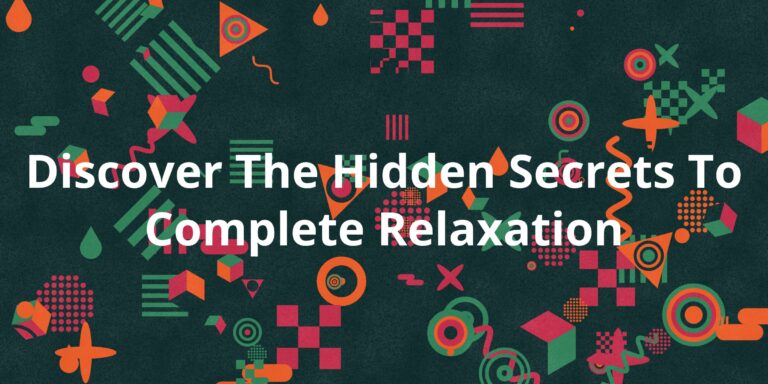The Power of Relaxation: Discover the Science Behind It
In today’s fast-paced world, many people find themselves struggling to manage stress and anxiety. They may turn to various methods such as medication or therapy, but one simple and effective technique that can help alleviate these issues is relaxation.
Relaxation is a state of calm and ease in which the mind and body are at rest. It has been practiced for thousands of years and is an integral part of many spiritual traditions. In recent years, scientific research has shown that relaxation techniques such as meditation, yoga, and deep breathing can have numerous benefits for both physical and mental health.
One of the primary benefits of relaxation is reducing stress levels. Chronic stress can lead to a variety of health problems, including high blood pressure, heart disease, and depression. Relaxation techniques can help reduce cortisol levels, which is the hormone responsible for the stress response. By lowering cortisol levels, relaxation can help alleviate symptoms of stress and anxiety.
Another benefit of relaxation is improving sleep quality. When we are stressed or anxious, it can be difficult to fall asleep and stay asleep. Relaxation techniques can help calm the mind and body, making it easier to fall asleep and stay asleep. This, in turn, can improve overall health and well-being.
Relaxation can also help with pain management. Studies have shown that relaxation techniques can reduce the perception of pain by up to 50%. This is particularly useful for people with chronic pain conditions such as arthritis or fibromyalgia.
In addition to these physical benefits, relaxation can also improve mental health. It can help reduce symptoms of anxiety and depression, increase feelings of happiness and well-being, and improve overall mood.
There are many different relaxation techniques that can be practiced, including meditation, yoga, deep breathing, progressive muscle relaxation, and guided imagery. Each technique has its own unique benefits and may be more suitable for certain individuals than others.
Meditation is a popular relaxation technique that involves focusing the mind on a specific object or concept, such as the breath or a mantra. This can help reduce stress and anxiety, improve focus and concentration, and increase feelings of inner peace.
Yoga is another effective relaxation technique that combines physical postures, breathing exercises, and meditation. Yoga has been shown to reduce stress levels, improve flexibility and strength, and promote overall well-being.
Deep breathing is a simple relaxation technique that involves taking slow, deep breaths in through the nose and out through the mouth. This can help reduce anxiety and stress levels, lower blood pressure, and improve overall respiratory function.
Progressive muscle relaxation involves tensing and relaxing different muscle groups of the body in a specific order. This can help release tension and promote relaxation throughout the entire body.
Guided imagery involves visualizing a peaceful or calming scene in your mind. This can help reduce stress levels, improve mood, and promote feelings of inner peace.
In conclusion, relaxation is a powerful tool for managing stress and improving overall health and well-being. There are many different relaxation techniques that can be practiced, and the right technique for you will depend on your individual needs and preferences. By incorporating relaxation into your daily routine, you can improve your physical and mental health and lead a more fulfilling life.



